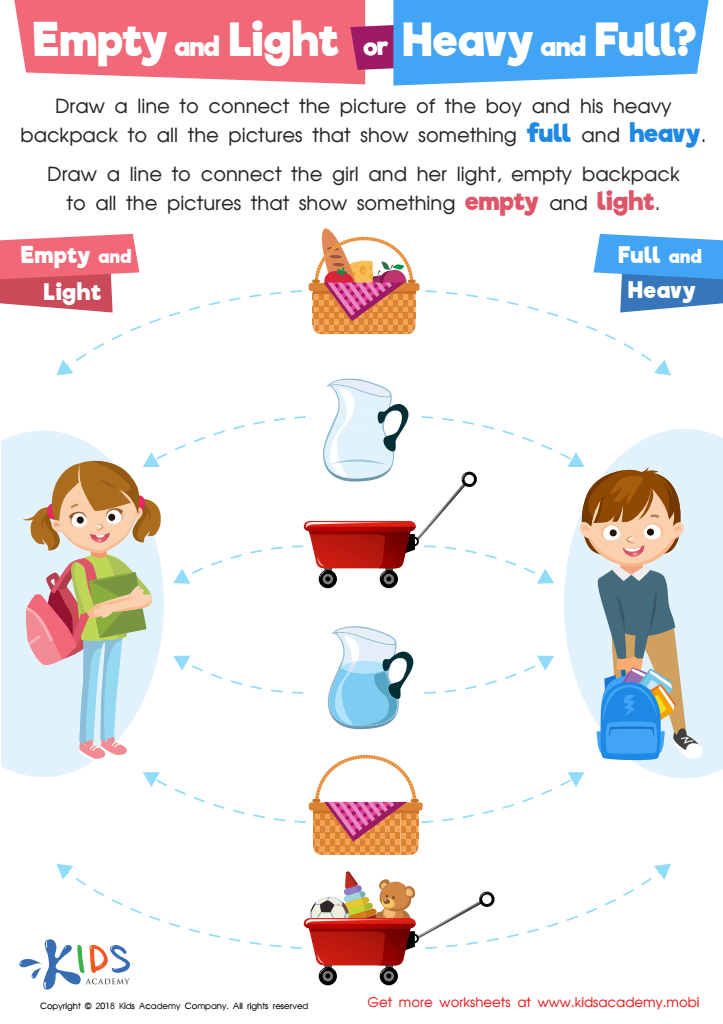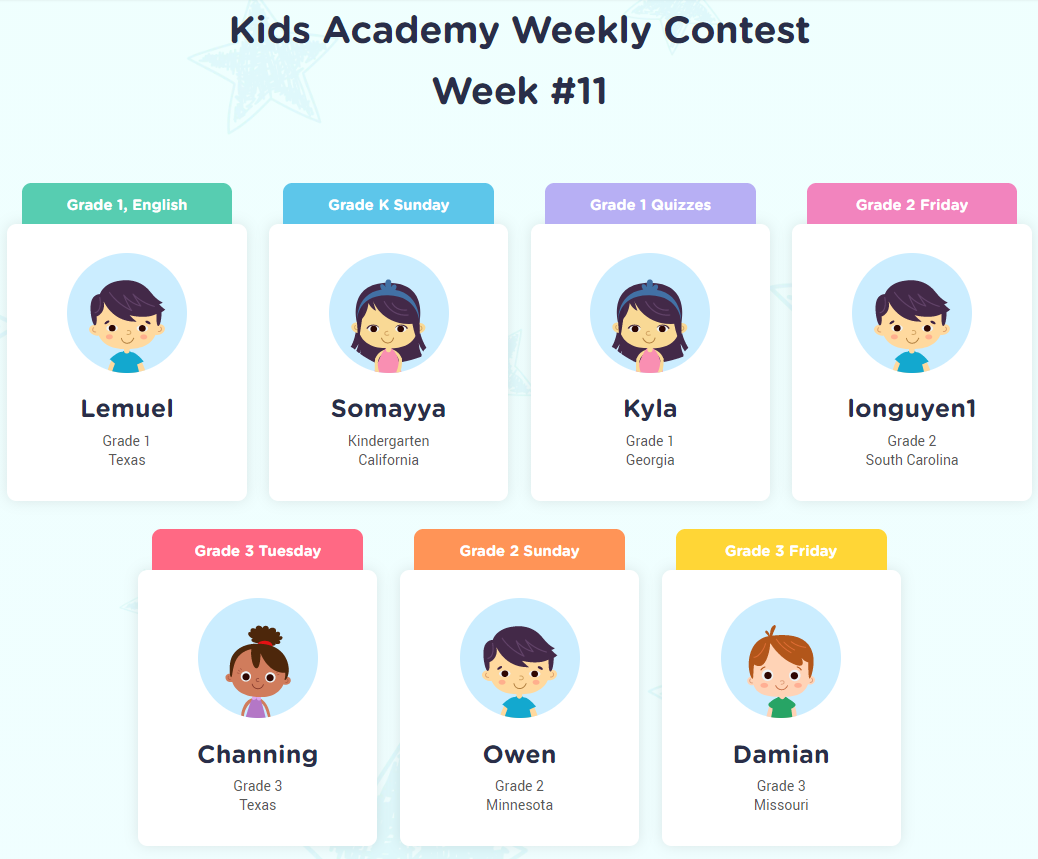Basic weight concepts Worksheets for Kids
1 filtered results
-
From - To


Empty and Light or Heavy and Full? Worksheet
Question/Answer
How to train the Basic weight concepts skill in Kindergarten students learning about Matching?
To train Basic weight concepts in Kindergarten students through Matching, engage them in hands-on activities where they compare and match objects based on weight. Use balance scales for them to physically see which objects are heavier or lighter. Start with obvious differences in weight, gradually moving to more subtle distinctions, reinforcing the concepts through playful, interactive learning experiences.
Why is the Basic weight concepts skill important for Kindergarten students?
The Basic weight concepts skill is important for Kindergarten students because it lays the foundation for understanding measurement, a key mathematical and scientific concept. Learning about weight helps develop their ability to compare, contrast, and quantify objects, fostering critical thinking and problem-solving skills. It also enhances their vocabulary and prepares them for more complex mathematical concepts in the future.
How does the mastery of the Basic weight concepts skill affect a student's performance at an early age?
Mastery of Basic weight concepts at an early age significantly enhances a student's mathematical understanding and problem-solving skills. It lays a strong foundation for advanced mathematical concepts, promotes critical thinking, and improves their ability to apply theoretical knowledge to real-world situations. This early competence also boosts confidence and engagement in learning, positively affecting overall academic performance.
 Assign to the classroom
Assign to the classroom










